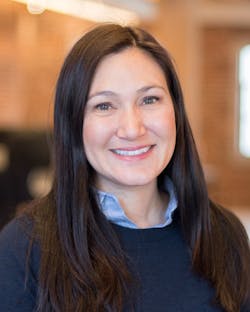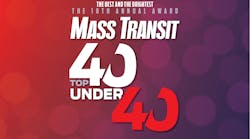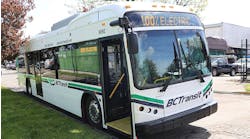- One word to describe yourself: Resourceful
- Alma Mater: Massachusetts Institute of Technology, Cornell University
- Favorite book: “Nudge: Improving Decisions about Health, Wealth, and Happiness” by Cass Sunstein and Richard Thaler
- Favorite hobby(s): Traveling, hiking and running
- Fun fact about yourself: I grew up in Silicon Valley
- Favorite station or stop that you have ever visited or frequent (and why): I lived in Washington, D.C., while I was a research fellow at the Union of Concerned Scientists during graduate school, and loved every visit to Union Station — it is one of the most beautiful transit stations in the U.S.
Regina Clewlow is the CEO and co-founder of Populus.ai, a transportation technology company focused on helping cities work more effectively with private mobility operators deliver safe, efficient and equitable transportation. Clelow has more than a decade of experience in transportation, where she is a leading expert on innovations in public transit, shared mobility and autonomous vehicles.
Clewlow formed Populus after serving as the director of business development and strategy at moovel North America, a provider of mobile fare collection solutions for transit agencies across the United States and Europe, including TriMet, SFMTA, VRE, and Metro Transit.
Prior to her roles in industry, Clewlow received her doctorate in transportation and energy systems from the Massachusetts Institute of Technology (MIT). As a research scientist at Stanford and University of California, Berkeley, she developed and led research on the travel behavior impacts of shared mobility services and autonomous vehicles. Clewlow was the lead author of the recent groundbreaking study “Disruptive Transportation: The Adoption, Utilization, and Impacts of Ride-Hailing in the United States” released in October 2017, which provided the first independent, multi-city analysis on the impacts of ride-hailing services on public transit. Her study also appeared in the peer-reviewed Transportation Research Board proceedings.
Clewlow’s findings are critical for the transit industry, as they have provided independent data and information on how the introduction of new, private mobility services impact public transit today, and their implications for the future. Her study has provided evidence for cities across the United States to successfully design strategies, such as implementing a tax on rapidly-growing private mobility services, to fund the continued improvement of mass transit. Clewlow now builds on her decade of transportation research as the CEO of Populus, helping cities access better data to ensure that innovative transportation technologies evolve in a way that is safe, efficient, and equitable.
Clewlow’s career also includes research collaboration with the Metropolitan Transportation Commission of the Bay Area while a postdoctoral scholar at UC Berkeley, where she worked on the regional forecast to inform transit investment priorities in 2012-13.
She has long been an active member of the transportation research and volunteer community. She has served as a volunteer for the Young Professionals in Transportation (Bay Area), including helping coordinate the Bay Area Transportation Camp of 2013. She is a current member of the Transportation Research Board (TRB) Emerging and Innovative Public Transport and Technologies Committee and Transportation and Sustainability Committee. Clewlow was a recipient of the Eisenhower Transportation Fellowship in 2010 for her doctoral research at MIT.
“Populus is a startup that was founded by experienced professionals who each have more than a decade of experience in transportation systems planning. I most enjoy working with a team of smart people who also share the same goals that I do — bringing cities, transit agencies, and private mobility operators better data so that they can help usher in a mobility future that is safe, equitable, and efficient."
“Working in the transportation sector at a time when the industry is experiencing so much change, innovation, and private investment is truly exciting. I have always been attracted to big problems which is why I pursued a Ph.D. in transportation 10 years ago, and consider myself incredibly fortunate to now have the opportunity to work on building solutions that aim to improve how people move in cities."




